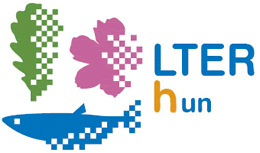
Description of the RI
The RI network carries out long-term and complex ecological and socio-ecological studies in the Kiskunság region and the Lake Balaton catchment in several sample areas through monitoring and field experiments.
The network aims to understand a wide range of ecosystem processes at different spatial and temporal scales and to generate broad ecological and socio-ecological knowledge through long-term interdisciplinary research, information synthesis and theory development. The living environment is primarily shaped by humans and has an impact on the quality of human life, therefore changes in the living environment and the underlying ecological processes are studied embedded in the socio-ecological environment, in broad national and international collaborations. The RI network is part of the European eLTER infrastructure, which is in the preparatory phase, and of the International Long-term Ecological Research Network (ILTER). In the Kiskunság region, field research is carried out at the Fejes-tanya (Fejes Farmhouse) research station of the Centre for Ecological Research in Fülöpháza, and in the case of Lake Balaton at the Balaton Limnological Research Institute. The infrastructure is partly located at the field sites, in the form of permanent sampling sites, in-site instruments and data collectors, and experimental equipment. Sample processing is partly carried out at the research station and partly at the premises of the host and partner institutions. An important element of the RI is the knowledge base maintained by the host and partner institutions, which is the result of many decades of research work at the field sites.
Activities and Services
Monitoring is carried out at permanent sample plots or sampling sites, where measurements of key ecosystem variables and monitoring of specific groups of communities are implemented. In addition, field experiments are designed and accomplished to investigate changes in ecosystem function, including the follow up and evaluation of ecological restoration success under controlled treatments.
The RI informs the wider scientific community, natural resource managers, decision-makers and the general public by providing decision support, information, recommendations, and the knowledge and skills to address complex environmental challenges.
The RI contributes to the preservation of the country's natural heritage by creating well-designed and documented archives of long-term observations, experiments, and possibly samples for future generations.
Distributed
Centre for Ecological Research
Budapest, Vácrátót, Fülöpháza, Tihany
under construction
Balaton Limnological Research Institute
With RIs
Institutional partners
- Institute for Soil Sciences
- Centre For Agricultural Research







